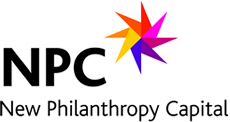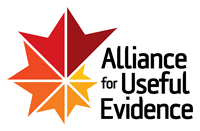Who cares about social impact analysis?
Read the original blog published on 20 July 2011 on NPC’s ‘Giving Insights’ here
This year, the Social Impact Analysts Association (SIAA) is being created to support and connect people who are involved in analysing the impact of charities. But is social impact analysis always worthwhile?
Charities, funders and the general public agree that charities should be as effective as possible in creating positive social change. We volunteer, give money, work for charities and even invest in corporate social responsibility departments because we believe that charity can improve people’s lives and make the world a better place.
It is in this spirit that the Social Impact Analysts Association is being created. SIAA is an international membership body that supports and connects people and organisations that are involved in analysing the impact of non-profits. We aim to strengthen and harmonise reporting and analysis by promoting debate and dialogue within the sector. We give voice to all those who analyse non-profits and raise awareness of social impact analysis as a profession.
Yet it is not always clear what precisely is meant by the apparently interchangeable terms ‘social impact assessment’, ‘social impact analysis’, and ‘social return on investment’, or even by the terms ‘evaluation’ or ‘measurement’. What is more, social impact assessment can be a time-consuming and difficult process. So are there occasions when it is an unhelpful or unnecessary exercise?
Measuring social impact
The “International Association for Impact Assessment” — an organisation primarily focused on environmental conservation — defines social impact assessment as ‘the processes of analysing, monitoring and managing the intended and unintended social consequences, both positive and negative, of planned interventions (policies, programs, plans, projects) and any social change processes invoked by those interventions.’ So the primary purpose of social impact assessment is ultimately to help bring about positive social change.
To achieve this, there is a wealth of different toolkits, frameworks and methods to measure and assess social impact, some more focused on hard outcomes (such as a database to track hospital re-admissions), others focused on softer outcomes (such as NPC’s Well-being Measure).
In the voluntary sector, there is a clear division between charities and social enterprises that enthusiastically embrace social impact assessment as a dynamic tool for organisational change and performance management, and those which see it as yet another onerous reporting exercise that adds little value to their work, or worse yet, is completely detached from it.
The benefits of social impact analysis
At its best and when placed at the heart of an organisation’s strategy, social impact assessment can be a dramatic lever to improve transparency and efficiency, help an organisation to become more effective, and implement dramatic structural changes.
One charity that has done this well is the older people’s charity WRVS, under the stewardship of its new chief executive Lynne Berry OBE. WRVS recently engaged in a social impact assessment of all its activities to feed into an overhaul of the charity’s internal structure, working practices and reach. The process helped to establish what kind of impact WRVS has on the lives of older people across the UK, and helped the charity to work better to reach its goals. The social impact report, together with a more recent social return on investment, has informed decisions about where WRVS allocates resources to be most effective, prioritising services that are working well and cost-effectively.
The benefits of committing to social impact analysis as a guide to setting strategy are manifold. To start with, as we have just seen, the results can provide a strong and transparent rationale for (and guide to) internal change and restructure. Analysis can help an organisation to move towards delivering better value and impact for money and can inform decisions that lead to cost savings—a critical issue in our particularly cash-starved era of public funding cuts and economic downturn. This can be achieved by cutting out activities that don’t work and reallocating funding to services that are in fact effective.
Engaging in an assessment process gives organisations a good opportunity to talk to their audiences, and allows the people who benefit to play a part in shaping the services that are delivered to them. Demonstrating value for money is also of increasing importance to funders, who want assurance that their often increasingly scarce pounds are well spent. It allows smaller organisations to compete with much larger charities and NGOs on the basis of value and impact, rather than on the basis of cost.
What’s the catch?
These are ideal-scenario outcomes. Yet there is much anecdotal evidence to suggest that assessing the social good an organisation creates can be an expensive, time-consuming and difficult process. Problems include convincing a managing team, trustee board or staff that social impact assessment is worthwhile, deciding what to measure, capturing the right data or proxies, and working out what to do with the data once you have it.
Worse still are the expensive and complex social impact assessments that which do not generate any meaningful information, or that are a box-ticking exercise loathed by the staff running the project or organisation being assessed. The process is often seen as a reporting duty and a tag-on, rather than a tool to inform strategy or performance. This means it often isn’t embedded in the organisation’s management, and findings aren’t used in any meaningful way.
Spreading the word
Although there is no quick and easy solution to these problems, social impact analysis is nevertheless crucial, and more needs to be done to raise awareness of its benefits and to support the people and organisations that carry it out.
This is what SIAA intends to do. We probably won’t convince those who are fundamentally opposed to impact measurement or those who resent the corporatisation of the third sector, as they see it, to the detriment of personal passion and practical delivery. But we can help to make the process of social impact assessment more practical, more simple and less intimidating.
To find out more about SIAA, visit our website or contact Claire Coulier on [email protected] or 0207 620 4888.






+44 (0) 20 3111 0735
[email protected]
Follow us on Twitter
Join us on LinkedIn
Join us on Facebook
Our photos on Flickr
Subscribe to our Feed